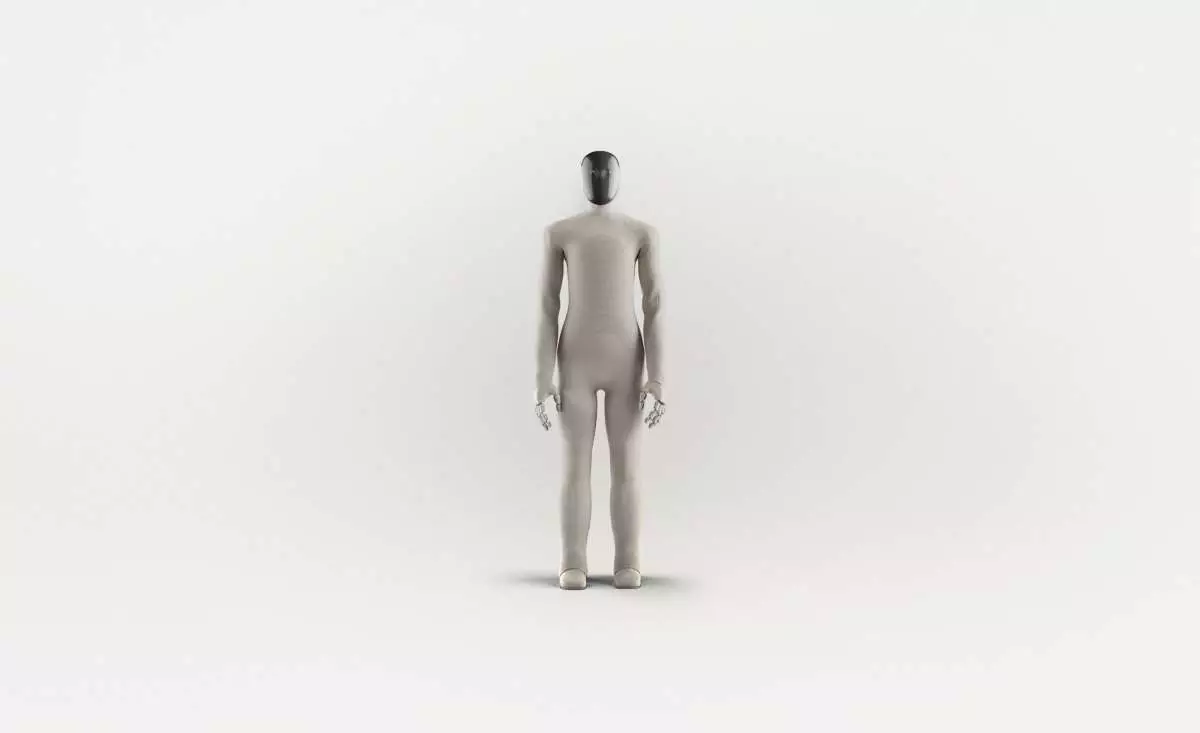The landscape of home robotics has been relatively stagnant, with traditional robotic vacuums and cleaning devices making the majority of the waves. However, 1X, a Norwegian robotics company, has taken significant strides toward transforming this landscape with the introduction of its latest humanoid robot, Neo Gamma. Unveiled on a recent Friday, Neo Gamma is positioned as a successor to its predecessor, Neo Beta, which made its debut just months earlier in August. This ambitious initiative signifies 1X’s commitment to redefining personal assistant robots, although the path to market readiness is still complex and full of challenges.
One standout feature of Neo Gamma is its human-centric design. The robot has been crafted to prioritize a friendly appearance, deviating from the cold, metallic looks often associated with robots. With a suit made of knitted nylon, 1X aims to ensure that Neo Gamma is not just functional but also approachable and safe for human interaction. This softer design is not merely cosmetic; it is a calculated response to the apprehensions many have about robots in domestic settings. By focusing on aesthetics that foster comfort and trust, 1X hopes to make a compelling case for the integration of these robots into everyday life.
What’s more, the robot is designed to perform tasks that resonate with common household chores, such as brewing coffee, doing laundry, and vacuuming. These functionalities place the Neo Gamma squarely in the realm of practical utility. Yet, despite this focus on usability, 1X has warned that we should not expect to see these robots in every home anytime soon. The promise of limited in-home testing indicates that while the robot has been developed, much work lies ahead before it can be deemed commercially viable.
The challenges of introducing humanoid robots into homes cannot be overstated. Past attempts to revolutionize domestic robotics have often faltered. Beyond the well-known robotic vacuums from companies like iRobot, most humanoid efforts have seen limited success. Dead ends in developing useful, reliable, and affordable robots underscore a key barrier: the technology. Home automation systems need more than just advanced coding; they require a comprehensive understanding of household dynamics, the ability to adapt, and a clear alignment with user needs.
As our population ages, the necessity for robots that assist in the home grows even more pressing. Many see the elderly as a key demographic for such technology, capable of enhancing their independence while ensuring safety. To effectively serve this demographic, robots must be more than mere assistants; they need robust awareness capabilities, which allow them to navigate various environments without posing a risk to people or property. The development of the onboard AI system in Neo Gamma is intended to address these complexities by fostering awareness and understanding of the robot’s surroundings.
Safety is paramount in the deployment of humanoid robots, especially in the domestic sphere. 1X acknowledges the importance of establishing safeguards, such as teleoperating capabilities. While autonomous systems are the ultimate goal, enabling human operators to intervene during critical moments provides an additional layer of security. For those integrating such technology into their lives, the knowledge that they can take command of the robot in an emergency is likely to alleviate fears and foster trust.
1X leans on its strong association with OpenAI to enhance the communicative qualities of its robots. This collaboration not only signifies a commitment to improving verbal interactions between humans and robots but also a shared vision of making embodied intelligence a reality. Through ongoing development of in-house models and AI technologies, 1X is enhancing the ability of Neo Gamma to interact naturally with its human counterparts, a crucial factor in the usability and acceptance of robots in home settings.
Though the arrival of Neo Gamma presents exciting possibilities, it is vital to retain a critical perspective on the road ahead. The innovative design and focus on safety reflect 1X’s desire to cultivate a new era of domestic robots, but substantial hurdles remain — including pricing, reliability, and functionality. While we may soon witness the first humanoid robots taking small steps into our homes, a deeper conversation about their integration hinges on addressing these very challenges. Only through rigorous testing and improvement can robotics truly transition from the realm of prototypes to a staple in households, heralding a future where these humanoid assistants become integral to our daily lives.

